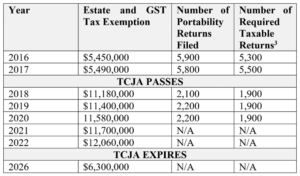What is a Title Commitment and Why is it Important?

Real estate transactions, whether commercial or residential, involve documents. So. Many. Documents. Among all this paperwork is usually a commitment for title insurance. With so many other documents, it can be tempting to ignore this one, but the title commitment contains valuable information about the subject property that merit both the buyer and seller’s attention.
What is a title commitment anyway? It is a legal contract between the title company issuing the commitment and the party to whom the commitment is issued, typically the buyer and/or lender, and is provided before closing. The title company commits or promises to issue a policy of title insurance according to the terms set out in the commitment after closing. In Texas, there are state-specific forms regulated by the Texas Department of Insurance, and forms generated by the American Land Title Association (ALTA) can also be used.
Let’s review a few key elements of the title commitment and how this information can impact a transaction.
- Schedule A. This schedule provides basic information about the proposed title policy and the property itself. Both the buyer and seller should review this information for accuracy. Confirm that the proposed insured is the buyer and the policy amount is correct (usually the purchase price for an owner’s policy). Also verify that the party in which title is vested is the seller.
Why is this important? Confirming this information ensures that the title policy will be issued to the correct party and in the correct amount. If the seller is paying the title policy premium, they ensure they are not overpaying. If the party in which title is vested is not the seller, then this will need to be addressed before closing. The seller may think they own the property (“I inherited it from my mother and I’ve been paying the property taxes for 20 years!”), but the real property records may indicate otherwise.
- Exceptions – Schedule B (TX commitment)/Schedule B-II (ALTA commitment). This is a list of items that the title policy will not cover. Some exceptions are generic and others reference specific documents recorded in the real property records in the county in which the property is located. Copies of these documents are usually provided by the title company along with the commitment. Exceptions include restrictions on use of the land, easements running across the property, mineral interests, and leases on the property. The buyer should review each exception carefully and consider how it could affect the ownership, development, and use of the property. A survey can help to identify the location of easements, building setback lines and other physical encumbrances. The contract governing the transaction may allow the buyer to object to certain exceptions. The seller should also review the exceptions to be aware of potential objections by the buyer.
Why is this important? Exceptions may reveal information about the property that could negatively impact the buyer’s ownership, development, and use of the property. Is the proposed use of the property restricted? If there is a utility easement in an area to be developed, does the easement document allow for buildings, driveways, or other improvements in the easement area? Are there existing improvements located in an easement or setback area? What rights do the owner of a mineral interest or lessee of an oil and gas lease have to the surface of the property?
- Requirements – Schedule C (TX commitment)/Schedule B-I (ALTA commitment). These are requirements by the title company to issue the title policy and can include documents to be provided to the title company, documents to be signed, and liens and other monetary encumbrances to be paid off and released. Both the buyer and seller should review this schedule to identify requirements that apply to them. The contract governing the transaction may stipulate how these items are to be handled.
Why is this important? The title company will not close, or issue the title policy, without complete satisfaction of these requirements, which can take time. For example, an old mortgage on the property was paid off years ago, but the appropriate release document was not recorded in the property records.
This is just scratching the surface of the wealth of information contained in this important document.
So why is the title commitment important? It alerts the buyer and seller to issues affecting title to the property, exceptions that will not be covered on the title policy, and conditions that must be met prior to closing. However, the title commitment and subsequent title policy do NOT guarantee that all issues related the property are known and that there will not be issues related to the property in the future.
It is good practice to have an attorney conduct a thorough review of the title commitment and associated documents so that you, as a buyer or seller, are completely aware of the issues that affect the property and would not be covered by the title policy post-closing. We at Stibbs & Co., P.C. have the skill set and experience to handle real estate matters for both buyers and sellers. Please contact our office to schedule an appointment to discuss your real estate needs.
These materials are made available by Stibbs & Co., P.C. for informational purposes only, do not constitute legal or tax advice, and are not a substitute for legal advice from qualified counsel. The laws of other states and nations may be entirely different from what is described. Your use of these materials does not create an attorney-client relationship between you and Stibbs & Co., P.C. The facts and results of each case will vary, and no particular result can be guaranteed. The facts and results of each case will vary, and no particular result can be guaranteed.








 Many young couples in the United States are enjoying the “Dual Income No Kids” (DINK) lifestyle. A large category of DINKs are unmarried. According to the 2008 census report, there were 6.2 million unmarried partner households in the United States. Pew Research Center reports that since 1995, marriage rates have declined 7% while cohabitation has increased by 4%.
Many young couples in the United States are enjoying the “Dual Income No Kids” (DINK) lifestyle. A large category of DINKs are unmarried. According to the 2008 census report, there were 6.2 million unmarried partner households in the United States. Pew Research Center reports that since 1995, marriage rates have declined 7% while cohabitation has increased by 4%.



